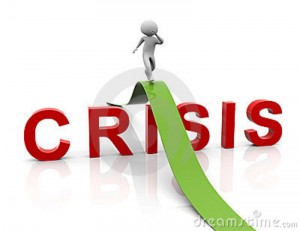It is key for organizations to manage their crisis communication effectively. A crisis is constantly changing. New threats could develop which could put your employees, your organization and other very important stakeholders at risk. Your reputation, financial security, safety and reputation are all in danger without the proper crisis communication strategy.
According to Dr. Robert Chandler, a nationally recognized crisis communication expert, there are six stages in every crisis: Warning, Risk Assessment, Response, Management, Resolution, and Recovery. The part of the six stages that requires an organization to look at the progression of a crisis is the management stage. This is also the stage where organizations see if the critical event moves towards a resolution or becomes worse as more information is gathered. This is perhaps the most important stage for effective communication to ensure the affected individuals safety.
Organizations are required to closely examine how it communicates with the affected individuals during the Management stage. How the organization handles this communication determines if the audience will respond to the situation accordingly.
Dr. Chandler also offered the following recommendations to manage crisis communication.
1) Use Meta-messages. Making your message carefully before sending it out to your target audience is key. It must be phrased correctly, delivered at a proper time, and having the proper context are a few factors that could impact your audiences response. Make sure to apply the 3-3-30 rule to your message.
2) Leverage two-way communication. Listen to what your audience has to say. Past crises have shown that normal citizens are resilient and can be the eyes and ears of your organization at the scene of the crisis. They can share photos, information and videos through their smartphones. This can give you the information that could keep affected individuals safe by delivering a more accurate response to the crisis.
3) Utilize Social Media. Twitter, Instagram and many other social media outlets provide real-time news and relevant information about a current crisis. Using these platforms for your benefit can help improve your critical communication strategy.
Being able to control a crisis as much as possible from start to finish is crucial to protect those affected as well as your organization.
